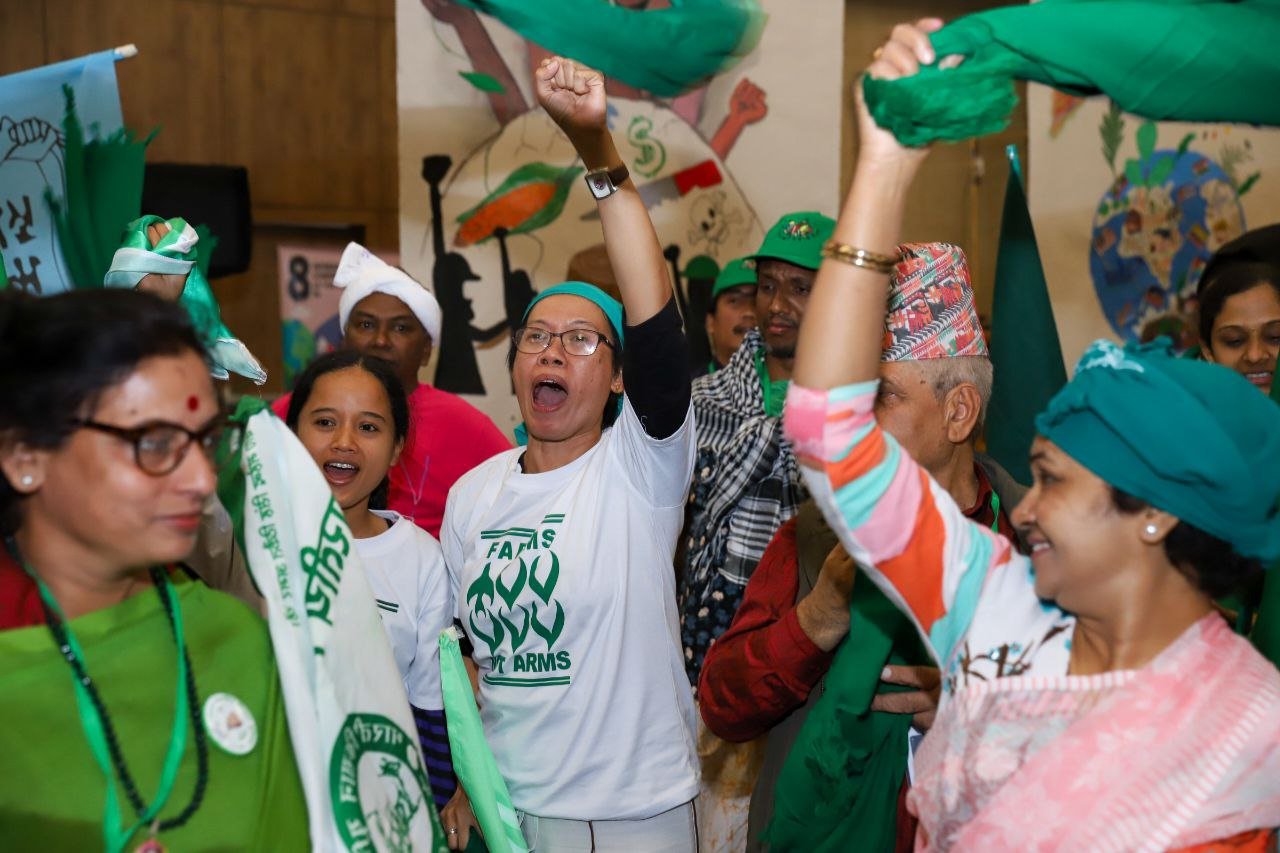Peasants around the globe find themselves at the forefront of the intensifying climate crisis, grappling with scorching droughts, heatwaves, torrential downpours, typhoons, and hailstorms. The adverse impacts of climate change is escalating rapidly, posing a direct threat to agriculture and food production worldwide. The 8th International Conference of La Via Campesina, held in Bogotá, Colombia, in December, provided a space for its members – small-holder farmers from more than 80 countries – to highlight the ongoing crises in their territories.
Chilean beekeepers, who spoke during the meeting, explained how they were among those who bore the brunt of this crisis. Extreme droughts had ignited forest fires, wreaking havoc on their livelihoods. In Turkey, according to peasant accounts, agricultural production plummeted by 50-60% in 2023 due to climate change effects, and the government’s responses, such as investing in solar panels on farmland and promoting electric vehicles, faced criticism for their inadequacy and unintended consequences – as they often came up on greenfield and fertile lands. In Sri Lanka, floods and droughts regularly disrupt farming, exacerbated by the government’s sale of natural resources to multinational corporations, leading to deforestation and hindering tea cultivation. Cambodian peasants explained how they grapple with the fallout of repeated typhoons, floods, and severe droughts, causing a 30% decline in agricultural production and forcing rural youth to migrate, jeopardizing food security.
Senegalese peasants also shared about their challenges. Fisherfolk and farmers are losing jobs due to flooding, prompting calls for international prosecution of transnational corporations responsible for climate impacts. Guatemalan peasants recounted how they are combating water resource depletion and forest loss, promoting agroecological farming to respond to climate change. Paraguayan peasants, facing deforestation and fires, are also advocating for agroecology as a solution. Those who came from Niger shared their experiences of severe food crises due to temperature increases, drought, and flooding, emphasizing the need to reduce carbon emissions and produce locally accessible agricultural products.
In Palestine, the combination of war and occupation accelerated climate change, diminishing agricultural production and food sovereignty. Palestinian peasants confront the accelerated impact of climate change under Israeli occupation, with olive trees being cut down, water resources seized, and high water prices imposed.
The Korean peasants who spoke at the Conference urged global unity against capitalist forces and multinational corporations to address the social and environmental aspects of the climate crisis. They also reflected on the global impact of the climate crisis, highlighting unpredictable losses for farmers and advocating against agrochemicals. This found echo among the French peasants who also called for international solidarity, prioritizing agroecology, and exposing false solutions and colonialist land grabs. Brazilian peasants who spoke at the event decried transnational corporations exploiting land and people, emphasizing the importance of concrete proposals and alternative solutions.
Congolese peasants asserted that the fight against climate change was a collective struggle, emphasizing biodiversity conservation and ecological agriculture for healthy food and planet protection. Honduran peasants stressed the importance of supporting agroecology schools and international aid to combat climate change. Peasants in the Dominican Republic emphasized the need to mobilize against neoliberal policies, capitalism, and imperialism in both rural and urban areas, advocating for large-scale campaigns to shift to ecological agriculture and achieve food sovereignty.
These testimonies of peasants worldwide revealed a shared struggle against the escalating climate crisis. From South America to Asia and Africa, the call for sustainable alternatives, such as agroecology, and the denouncement of inadequate responses and corporate exploitation echoed a united plea for global action to safeguard the future of agriculture and food production.
This is an edited version of a reporter’s note prepared by Jang Su-ji, who attended the 8th International Conference and covered it for IKP News in South Korea.
This post is also available in Español.

